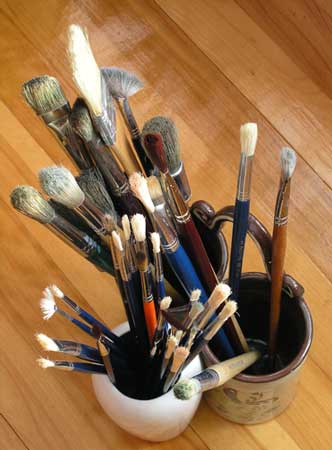Eleonore Blaurock-Busch
Hersbruck, Germany
Poet’s statement
Poetry allows us to summarize human and world issues in condensed lines and emotion. By condensing, we focus on that which we consider important.
Memory
He is old now, my older brother.
Hip and knee replacement,
the prostatectomy took a toll.
He is slower, more pale and wrinkled
and before he forgets more
than his money or keys
in neighbourhood banks or his kitchen refrigerator
I will tell him
how it haunted me all my life
that he stuck his finger up my vagina
when I was innocent,
not yet understanding
that he simply wanted to know
what that female organ feels like.
I suppose he thought of fucking
some neighborhood girl.
Not me, thank God!
I was terrorized by his probing,
thought-stiffling invasion,
which froze me all the way
up to my brain and down to my ankles.
I will have to tell him
how avalanches of dark dreams
crushed, suffocated, and bruised
me in panic-ridden nights.
I can assure him
that rationalizing events
can foster forgiveness.
I have forgiven,
but never forgotten.
Has he?
Grandpa Louis
Decades ago,
I sat at the oval table near the window
with the best light in the house,
waiting for Grandpa.
Each Sunday, I waited
by the oval table near the window with the best light
while Mara cooked, and mother took her weekly bath.
Dad, I don’t remember.
He was in Russia, kept prisoner ‘til 1948.
When he returned, too broken
and isolated in pain to notice me,
he was full of ulcers,
some visible.
I watched in awe, while Grandpa
magically conjured jumping or sleeping horses,
birds, all black and white,
with detailed beaks and shadowed wings,
tulips at times.
I never wanted him to stop
or go away.
Before entering his sanctuary, I waited,
comprehending his anxiety
for I might have bumped easels and paints,
carefully stocked, positioned like soldiers
in a well-lit attic,
not unlike mine today.
First time I stepped over the treasured threshold
I nearly cried,
inhaling the stench of linseed oil
with passion
while moving around paper, linen, and glass.
Paintings piled up high,
some framed, fastened to majestic hooks,
his within reach.
I didn’t dare touch,
though I knew
he considered his inferior
to those stored in safe places.
I never liked the darkness
of the bearded faces with stern eyes,
shaded by fur hats.
Ringed hands of exemplary men
holding pen, book, or sceptre,
posing near awe-inspiring tables or chairs,
rarely smiling.
Ladies hung on walls, waiting for restoration,
breath-withholding.
Some pretty, most blank-faced, jewelled,
wearing stiff dresses,
clinging to flowers or anaemic babies,
never books.
He took his time
to select suitable music
before restoring cracks, barely visible
in 16th, 17th, 18th, even 19th century art.
Heightened senses and appropriate light
are essential when following bygone strokes.
ALL must be perfect, for they ARE perfect.
Those were his words.
I quietly entered sandstone churches
where he saved altar paintings and mighty pillars,
whispered about acid pollution
wearing down monumental walls
once thought indestructible,
pointed out amber rays of light
passing through stained glass,
softening apostles’ faces.
His light!
Magic and curse to meticulous, quiet strokes
mending ancient lines
on chapel ceilings or floors,
all fenced off to the public.
Brushes and words he selected with care.
Focus, he said. Always focus.
Not unlike sandstone
talent needs work
or crumbles away.
I focused hard
that numbing day he left,
struggled with morning rays
and tear dripping icicles,
melting into sandstone.
ELEONORE BLAUROCK-BUSCH, PhD, is laboratory director and researcher at Micro Trace Minerals Laboratory in Germany (formerly Trace Minerals International of Boulder, Colorado, USA). She is scientific advisor to the German Medical Association of Clinical Metal Toxicology and the International Board of Clinical Metal Toxicology (IBCMT). She has published many research articles and authored several books. She continues to study creative writing at Oxford University. Some of her poems have recently been published in The Mitre Literary Magazine.
Highlighted in Frontispiece Volume 4, Issue 2 – Spring 2012



Leave a Reply